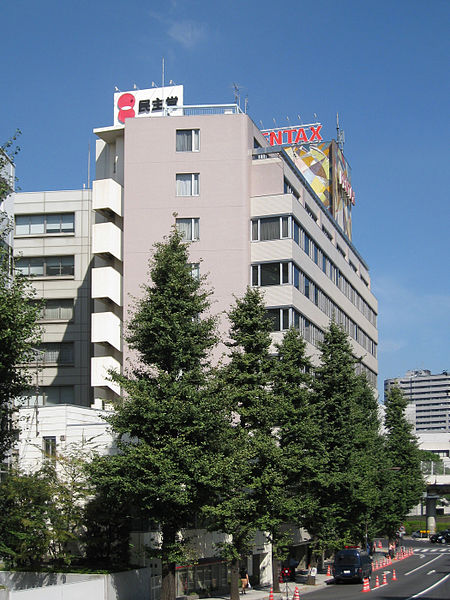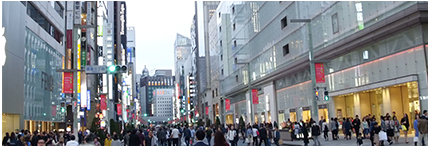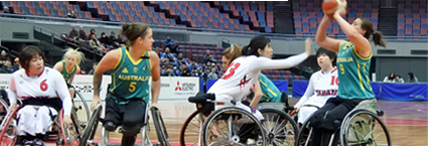The Opposition Revival Fall: Will the DPJ Maintain the Status Quo? BY JUNICHI FUJIMOTO
August 13, 2013
Junichi Fujimoto was born in 1958. He is a journalist. After working for newspapers and magazines, he became a freelance journalist. Since 2003, he writes a series of political articles published under the heading of “Nagata-cho Waido-sho” for the daily newspaper “Tokyo Sports”. Among other books, he wrote “Nagata-cho Kitan (Curious Incidents at Nagata-cho)”(Fusosha Publishing). His blog is: http://fujimoto-junichi.blogspot.jp/
*Headquarters of the Democratic Party of Japan (Wikimedia Commons/Author: Lombroso)
On August 7, at a plenary the House of Councilors appointed its standing committee chairs while the House of Representatives entered its recess period after the proceedings for out of session inspections. About Deputy Prime Minister and Minister of Finance, Taro Aso’s remarks on the Nazi regime, six opposition parties including the Democratic Party of Japan, Your Party, and the Japanese Communist Party declared that “such reckless remarks cannot be tolerated. They have immensely harmed the international credibility of our country” and requested for an intensive session or an out of session deliberation of the case. However, the opposition parties request bore no fruits and was rejected in a Diet where the Liberal Democratic Party and the New Komeito enjoy an overwhelming majority in both chambers. The opposition has certainly realized that the “twisted” parliament era has come to an end.
On the other hand, the ruling coalition is far from constituting a united bloc either. From the fall on, Prime Minister Shinzo Abe’s leadership will be put to the test since the ruling coalition is divided on political issues such as the increase of the consumption tax, the Trans-Pacific Partnership or the constitutional interpretation of the collective defense. These are moot points within the ruling bloc the opposition should take advantage of.
Of course, not much can be expected of a divided opposition. In the first instance, the Democratic Party of Japan as the first opposition party has to demonstrate a strong awareness and sense of responsibility.
On that very day, Satoshi Yamamoto of the Federation of Kagawa Prefecture DPJ branch and other members along with sympathizers among the party’s local lawmakers visited the Secretary-General of the party, Akihiro Otake at the DPJ headquarters. They submitted a written request signed by 124 local lawmakers stating that “the Democratic Party of Japan is not seen as a credible party worth being in charge of the population. In order to change such an image, an election of the head of the party is necessary”. This, perhaps, reflects the view of many supporters of the Democratic Party of Japan.
To the request Secretary-General Otake is said to have replied that “within the party there are members who think that it’s not appropriate to hold an election of the party representative. We are trying to figure out the best way”.
What is the real point in such an answer? If a party representative election is averted with fear of goading some party members to ill-feelings, such a way of thinking is excessively party-centered.
Above all, elections are the core of democratic politics. For the Democratic Party of Japan the first step towards revival lies in the heeding of diverse opinions from within and outside the party by means of elections.
“National lawmakers are not really aware of the looming dangers. The voice of local communities is to be echoed. I am going to campaign for supporters, until the election of the party representative is held”.
This is what Yamamoto, one of the pro-election local lawmakers, told the media. If the party representative election is not held it’ll be time to rapidly abandon the DPJ. The deadline would be the coming fall extraordinary Diet session which is going to begin in October.
[Excerpt from the Blog “Fujimoto Junichi ga ‘Seiji wo Yomitoku’”]
(Translated from Japanese by Willy Lukebana Toko)








